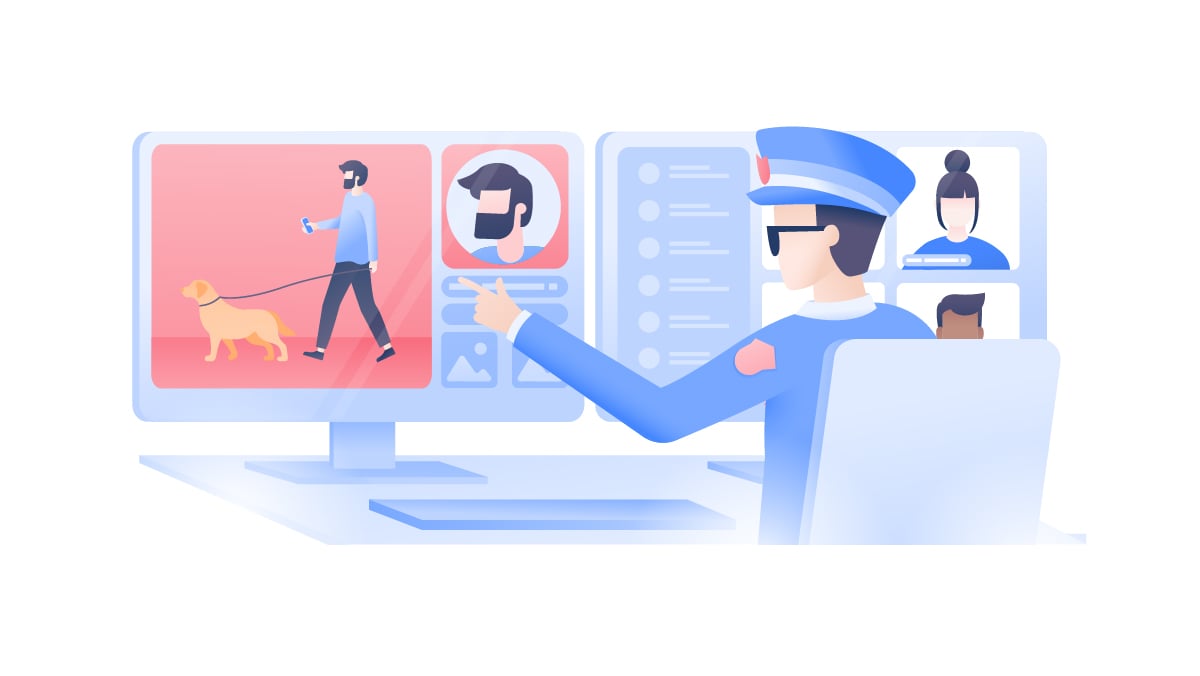5 times hackers had a sense of humor
Hacking is no laughing matter — most of the time. Whether it’s a well-placed pop culture reference or a cupcake-themed counterterrorism operation, some hacks are so funny that you just have to laugh. Here are five times hackers reminded us they had a sense of humor.
Can hackers be fun?
Although we usually refer to hacking as a criminal activity, and it is debatable whether it is ethical to make hacking jokes, some hacker interruptions are more amusing than dangerous. Funny hackers usually have no intent to steal or cause damage, yet they still get unauthorized access to computer systems, networks, and private data.
In short, hackers can be fun. However, such hacking activities may have serious consequences, such as legal penalties or damaging individual or organizational reputations. So it is important for everyone to promote an ethical and responsible approach when it comes to computer systems and personal data. What is funny and innocent for trolls may seem like an invasion of privacy and security to the victims.
Funniest hacker attacks
We all know how dangerous cybercriminals can be, often costing individuals and organizations sensitive data, large sums of money, or even their reputation. But sometimes hackers can surprise you with creative and unique solutions that may make you chuckle. Here are some of the funniest hacks we’ve come across:
1. Ellen takes on al-Qaeda
“Warning: sugar rush ahead!” That was a direct quote from a terrorist manual entitled “Make a bomb in the kitchen of your mom.” Had al-Qaeda finally decided to swap bombs for baking powder?
Not exactly. In 2011, United Kingdom intelligence agencies managed to hack an online Jihadist network. They edited one of the site’s free bomb-making guides, replacing the original contents with text and code from a very different webpage: Ellen DeGeneres’s The Best Cupcakes in America.
Instead of a recipe for lethal pipe bombs, would-be terrorists were given details on how to bake a mojito cupcake. Delicious! And only deadly if you eat more than five in one sitting.
2. A glorious resurrection!
“Stackoverflowin has returned to his glory, your printer is part of a flaming botnet, the hacker god has returned from the dead. YOUR PRINTER HAS BEEN OWNED.”
Thousands of printers in 2017 spat out this message. The text appeared on a freshly printed sheet of paper along with the image of a vengeful robot.
The genius behind the attack? A single hacker using the alias Stackoverflowin. He set up an automated program to comb the internet, finding and accessing over 150,000 unsecured printers.
Thankfully, Stackoverflowin must have been in a good mood that day. After warning of the imminent return of “the hacker god,” he simply told his victims to fix their broken security systems. If the next hacker to stumble on a vulnerability like that is a cybercriminal with ill intent, how much damage could they do?
3. Godzilla vs. Rush Hour Traffic: The movie
In 2014, drivers in San Francisco spotted a slightly unusual traffic sign. Electronic displays along Van Ness Avenue began flashing a warning: “Godzilla Attack! Turn back.”
That’s not bad advice, actually — you don’t hang around when Godzilla shows up. But on this occasion, there was no impending kaiju attack. Hackers had managed to access parts of San Francisco’s traffic alert system and decided to have some fun with it.
Photographs of the incident were widely shared online, and most people saw the funny side of it. Homeland Security was slightly less amused.
4. Donald Trump teases his new mixtape
In 2013, the Twitter account of the man who would become the 45th US president posted: “These hoes think they classy, well that’s the class I’m skippen.”
Either Donald Trump was about to drop a new collab with the rapper Lil Wayne, from whose song the lyrics were taken, or he’d been hacked. Trump quickly clarified that it was the latter, announcing, “My Twitter has been seriously hacked — and we are looking for the perpetrators.”
Somehow, a reference to “classy hoes” still isn’t the strangest thing Trump’s account has Tweeted (I’m looking at you, covfefe).
A hacker can cause significant damage once they’re inside your social media — they can lock you out, target your friends with phishing attacks, and access linked accounts. And sure, they might just post a Lil Wayne quote — but don’t count on it. Why not take some time to secure your own Twitter account today?
5. AC/DC make it in Iran
Cyberwarfare may be the future of international conflict, but some practitioners still look to the past for inspiration. To 1990, to be precise, when rock legends AC/DC released their song Thunderstruck.
Two decades later, it blasted over the sound system in nuclear facilities across Iran. A virus called Stuxnet (apparently created by US and Israeli forces) had infected state computer networks, disrupting its nuclear program. To add a bit of spice, the hackers forced multiple workstations to play Thunderstruck at top volume.
Along with most other forms of music, rock and roll is banned in the country, so this may have been AC/DC’s only chance to make it big in the Iranian market. Sadly, the band is yet to land a single on Iran’s Billboard Hot 100.
How to always have the last laugh
Sadly, most hacks aren’t as funny as the ones we’ve covered in this article. If your passwords are stolen or your device is infected with ransomware, you’ll probably feel more like crying than laughing.
If you have fallen victim to hackers, you can always prevent them from harming others by reporting the cybercrime to the cybercrime units. What’s more, educate yourself about what hackers target the most and stay one step ahead of them.
However, with a few precautions, you can ensure you’re never the butt of a cybercriminal’s bad joke. Follow these three steps today to supercharge your online security.
- Stop using simple passwords. Tacking your birth year onto your pet’s name won’t cut it anymore – that’s not a strong password. Your login credentials are often the only thing between the hackers and private information, making them as complex as possible. Mix uppercase and lowercase letters with symbols and numbers. And if that’s too hard to remember, get a password manager to generate and store your login details.
- Take a caution-first approach. The less trusting you are online, the safer you’ll be. An email from an unknown sender? It might be a phishing attack. A brightly colored pop-up ad? Malware incoming! Implementing a caution-first approach online will lower the chances of you sleepwalking into the hands of a hacker and will make sure you’re never taken off guard.
- Start using a VPN. A VPN is probably the simplest and most effective way to enhance online security. VPNs, or virtual private networks, are services that encrypt your data. With a good VPN on your device, hackers and snoopers can’t spy on your online activity. And with NordVPN’s Threat Protection Pro, you’ll be safe from trackers, intrusive ads, and malicious websites. It will also prevent viruses from getting on your device — Threat Protection Pro scans the files you download and deletes them if it detects malware.

